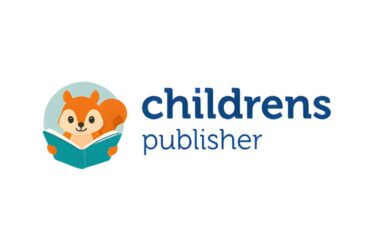Ad Details
-
Ad ID: 13744
-
Added: October 27, 2025
-
Condition: Brand New
-
Location: United States
-
State: AL
-
City: Florence / Muscle Shoals
-
Views: 140
-
Email: rijekot797@hh7f.com
Description
<div id="model-response-message-contentr_978e9ad1eb461e45" class="markdown markdown-main-panel stronger enable-updated-hr-color" dir="ltr">
<p> </p>
<div id="model-response-message-contentr_4140e4c0ac65322b" class="markdown markdown-main-panel stronger enable-updated-hr-color" dir="ltr">
<p> </p>
<h2>The Ethical Compass of Care: Navigating Moral Challenges in Nursing 🧭</h2>
<p> </p>
<p>Nursing is fundamentally an <strong>ethical profession</strong>. Every shift presents nurses with decisions that are not just clinical, but deeply moral. They stand at the intersection of life and death, hope and despair, often holding the hands of patients and families through their most vulnerable moments. This unique position means nurses must constantly engage with complex ethical dilemmas, requiring more than just medical knowledge—it demands <strong>courage, <a href="https://www.writinkservices.com/">paper writer services</a> integrity, and a finely tuned moral compass</strong>. Far from being just task-doers, nurses are <strong>moral agents</strong> in the healthcare system, tasked with protecting patient dignity and ensuring justice in care delivery.</p>
<hr />
<p> </p>
<h3>The Foundations of Nursing Ethics</h3>
<p> </p>
<p>The ethical framework of nursing is built upon core principles that guide decision-making. These principles are not abstract theories; they are practical tools used daily at the bedside:</p>
<ul>
<li>
<p><strong>Autonomy:</strong> Respecting the patient's right to self-determination. This means ensuring patients are <strong>fully informed</strong> about their diagnosis and treatment options and have the right to accept or refuse care, even if that decision seems medically unwise. This is central to the concept of informed consent.</p>
</li>
<li>
<p><strong>Beneficence:</strong> The duty to <strong>do good</strong> and actively promote the well-being of the patient. This involves providing competent care, advocating for best practices, and intervening when harm is imminent.</p>
</li>
<li>
<p><strong>Non-Maleficence:</strong> The obligation to <strong>do no harm</strong>. This requires nurses to carefully weigh the risks and benefits of any intervention, adhering to professional standards, and being vigilant against medical errors.</p>
</li>
<li>
<p><strong>Justice:</strong> The fair distribution of healthcare resources and the equitable treatment of all patients, regardless of their socioeconomic status, race, religion, or background.</p>
</li>
</ul>
<p>These principles often harmonize, but sometimes they clash, creating true <strong>ethical conflicts</strong>.</p>
<hr />
<p> </p>
<h3>Common Ethical Dilemmas at the Bedside</h3>
<p> </p>
<p>Nurses regularly face high-stakes situations where their ethical principles are tested:</p>
<p> </p>
<h4>End-of-Life Decisions: The Weight of Hope and Acceptance</h4>
<p> </p>
<p>Perhaps the most profound ethical challenges arise at the end of life. Nurses are often the primary communicators, <a href="https://www.writinkservices.com/nurs-fpx-8008-assessment-1-analyzing-person-centered-care/">NURS FPX 8008 Assessment 1</a> translating complex medical jargon about prognosis and life-sustaining measures to families. Dilemmas frequently involve:</p>
<ul>
<li>
<p><strong>Withholding or Withdrawing Treatment:</strong> Families or patients may request or refuse life support (like mechanical ventilation or feeding tubes). Nurses play a crucial role in ensuring the patient’s wishes (documented in <strong>Advance Directives</strong>) are honored, even when family members disagree or when caregivers feel emotionally conflicted.</p>
</li>
<li>
<p><strong>Palliative Sedation vs. Euthanasia:</strong> Distinguishing between providing comfort measures that may hasten death (palliative care) and active measures to end life (euthanasia, which is illegal in most places) is a delicate ethical and legal boundary that nurses must navigate with care.</p>
</li>
</ul>
<p> </p>
<h4>Resource Allocation: Doing the Most Good</h4>
<p> </p>
<p>Especially in high-demand areas like Intensive Care Units (ICUs) or during public health crises (like a pandemic), nurses confront the ethical challenge of <strong>resource scarcity</strong>. Who gets the last available ventilator? Who qualifies for an organ transplant? While often managed by hospital protocols and committees, nurses are the ones who implement these tough decisions and deal with the emotional fallout from patients and families who feel unjustly denied care. The principle of <strong>justice</strong> is paramount here, requiring transparency and fairness in decision-making.</p>
<p> </p>
<h4>Moral Distress and Integrity</h4>
<p> </p>
<p>Sometimes, the ethical conflict is internal, leading to <strong>moral distress</strong>. This occurs when a nurse knows the right thing to do but is prevented from doing it by institutional constraints (like inadequate staffing, outdated policies, or a physician's conflicting order). For example, a nurse may feel compelled to report suspected abuse or neglect but fears professional repercussions. Unresolved moral distress is a significant contributor to <strong>burnout</strong> and compassion fatigue, highlighting the need for organizational support systems like <strong>Ethics Committees</strong>.</p>
<hr />
<p> </p>
<h3>Advocacy and Ethical Leadership</h3>
<p> </p>
<p>The nurse’s role as a moral agent extends beyond individual patient care to institutional and systemic advocacy.</p>
<p> </p>
<h4>Whistleblowing and Reporting</h4>
<p> </p>
<p>A nurse’s professional and ethical duty to protect patients sometimes requires them to <strong>blow the whistle</strong> on dangerous practices, incompetence, <a href="https://www.writinkservices.com/nurs-fpx-8008-assessment-2/">NURS FPX 8008 Assessment 2</a> or systemic failures within their facility. This is a courageous act that places the nurse's career at risk but upholds the non-maleficence principle and their commitment to patient safety. Strong legal and professional protections are essential to encourage this vital ethical check.</p>
<p> </p>
<h4>Participation in Ethics Committee </h4>
<p>Many nurses are active members of hospital Ethics Committees. In this role, they help mediate conflicts between patients, families, and the care team, provide consultation on complex cases, and contribute to developing ethical institutional policies. Their <strong>bedside perspective</strong> is invaluable, ensuring policies are practical, patient-centered, and sensitive to real-world care delivery.</p>
<h4>Cultivating Ethical Resilience</h4>
<p>To sustain a career filled with ethical challenges, nurses must develop <strong>ethical resilience</strong>. This involves continuous reflection on their values, participation in ethics education, and the courage to engage in <strong>courageous conversations</strong>—speaking up when a patient's care plan conflicts with their best interests or their autonomous wishes. Hospitals must foster a <strong>culture of psychological safety</strong>, where nurses feel empowered and supported to raise ethical concerns without fear of retaliation.</p>
<h3>Conclusion</h3>
<p>The nurse is the <strong>ethical heart</strong> of the healthcare team. They don't just follow orders; they are active moral decision-makers whose daily actions define the quality and humanity of care. Navigating the complex ethical landscape—from autonomy at the end of life to justice in resource allocation—requires profound wisdom and strength. By grounding their practice in core ethical principles and cultivating both personal and organizational resilience, nurses ensure that the pursuit of healing is always conducted with <strong>dignity, compassion, and uncompromising moral integrity</strong>. The strength of the healthcare system ultimately rests on the ethical fortitude of its nurses.</p>
</div>
</div>









